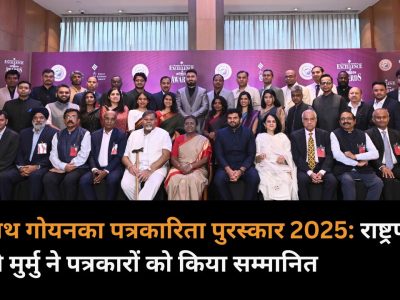India was one of the early and unwavering promoters of international cooperation in sustainable development. It’s well known that in 1972, then-Indian Prime Minister Indira Gandhi was the only head of state, aside from the host, Swedish Prime Minister Olof Palme, to attend the UN Conference on Human Environment in Stockholm. In a moving address, Gandhi stated that progress need not be synonymous with an assault on the natural environment. In their philosophical outlook, the Indian people have always strived for harmony with nature. The unpredictable monsoon-linked water supply has taught them to be mindful, share available supplies, and harvest every precious drop of water since time immemorial.
India is among the countries most affected by the negative effects of climate change, with almost 85% of its territory within the zone of certain climate risks. The gravity of environmental crises, both global and national, is so evident to the people of India that in a recent poll, it had the highest share (64%) of respondents willing to pay more tax to help prevent climate change among all the 29 countries surveyed.
In recent years, India has introduced numerous important and successful initiatives aimed at reversing the negative impact on nature. The green economy is a personal priority for Prime Minister Narendra Modi. However, most experts agree that, unfortunately, given India’s social and economic pressures, the environmental situation in the country is likely to get worse before it gets better. Given these challenges, cooperation with nations that face similar issues and share a similar approach to development becomes critically important.
When trying to impose restrictions against Russian companies working in India, New Delhi’s Western partners are undermining India’s interests. This is particularly noteworthy regarding the unfolding Indo-Russian cooperation on issues related to sustainable development, the ESG (environmental, social and governance) agenda, and combating climate change. Russian-Indian cooperation has never been just about defense and weapons supplies. It ranges from intensive cultural exchanges to large-scale industrial projects, as well as strong links in science and education. In the military-technical field, Russia has been India’s trusted partner in “Make in India” efforts since their very inception. Today, this cooperation goes beyond essential supplies of oil, coal, and fertilizers: the Kudankulam nuclear plant is powering high-quality economic and social growth in Tamil Nadu and beyond.
Regarding Russia, the country’s energy mix is dominated by gas, and it is blessed with CO2-absorbing forests. But this leaves no room for complacency. The prevailing notion of boundless natural resources combined with the Soviet-era big concept of state-owned, shared wealth have had their negative impact for decades. In Russia, people are now learning to be more aware and responsible. There is a big clean-up taking place all over the country, particularly in its industrial zones and Arctic areas. Russia is a predominantly urban country. Ecology or environment is one of the government’s top priority national programs. The planning and management of big and smaller cities is improving. Individuals as well as businesses are becoming more energy and resource-efficient. For instance, per unit water consumption in industry has decreased significantly in recent years. Still, there is a lot more to be done.
Importantly, Russia and India share a common approach to international climate change efforts. Both countries stress the historical responsibility of developed nations for global environmental deterioration and climate change. They believe that the developing world is disproportionately hit by these consequences.
And here we come to the issue of technology. Clean tech is the testing ground for developed countries’ sincerity in their willingness to support nations such as India – countries that can literally help the world avoid a climate disaster in the coming years if their economies rise along the green path.
Yet, what do we hear? The G7 is concerned and discussing threats (to its corporations) posed by China’s “cheap tech.” On the other hand, Western media has recently gone as far as to suggest that technology and investment can be used as sanction tools to pressure India into more obedient behavior regarding New Delhi’s foreign and domestic policies. The “protect and profit” approach still rules, and expensive clean tech, apparently, is supposed to remain out of reach for countries that need it most.
There is a growing number of Russian companies in India bringing advanced science and technology to serve environmental agendas. They work in areas such as smart cities, air pollution monitoring and purification, waste management, energy efficiency, and water treatment, to name a few. This bottom-up development is met with concerted top-down efforts that may support such companies and institutionalize cooperation between the two countries in these emerging fields.
One of the fast-developing areas here is urban management. The BRICS+ Association of Cities and Municipalities, recently established at a meeting in Kazan, is one such step in this direction. In June of this year, the Indian town of Shimla, in the Himalayan foothills, hosted a discussion between Russian and Indian experts on some of the most important segments of the ESG agenda, such as urban planning and water resources management, supported by VEB Institute, which is a part of VEB.RF, a national economic development corporation, and St. Petersburg Dialogue, a discussion platform for experts and civil societies.
Like in many other areas of Russian-Indian cooperation, the field of sustainable development is also actively searching for complementarity, as today green projects need to be not just beneficial but economically viable. The two countries are learning from each other’s experiences to make them work. As there is much that Russia and India can do together in this area, sustainable development is likely to feature more prominently on the agenda from now on, and this will likely be reflected during the forthcoming bilateral summit between the Russian and Indian leaders in Moscow later this month.




 Subscribe Us
Subscribe Us
















